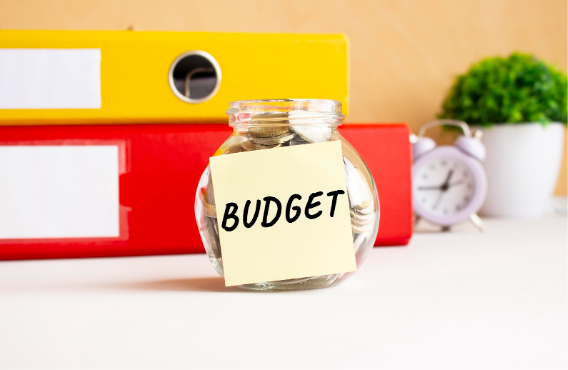
How to Create a Fail-Proof Budget: A Step-by-Step Guide
Money can be confusing, right? You earn it, you spend it, but figuring out how to manage it well can feel like solving a puzzle. That’s where budgeting comes in. A budget is a plan for your money, so you know where each dollar should go. This blog post is here to guide you through creating a budget that you can stick to. No financial jargon, no complex calculations—just simple, actionable steps to help you take control of your money.
Understanding Your Income
First things first: let’s find out how much money you have to work with. We’re talking about your net income here, which is the money you take home after taxes and other deductions. Don’t use your gross income; that’s the money you earn before all those deductions and it’ll give you a false sense of how much you have to spend. Make sure you count every source of income you have, whether it’s your main job, a side gig, or even a monthly allowance.
Listing Your Expenses
Now that you know how much money is coming in, let’s figure out where it’s all going. Start by listing all your expenses. Don’t leave anything out! We’re talking rent or mortgage, groceries, utilities, car payments, and even those sneaky little subscriptions that auto-renew each month. Expenses are usually in two forms: fixed and variable. Fixed expenses stay the same each month, like rent. Variable expenses change, like how much you spend eating out. Knowing both types is key to making a budget that works for you.
The 50/30/20 Rule
Here’s a simple way to structure your budget: the 50/30/20 rule. This means you’ll spend 50% of your net income on needs, and 30% on wants, and put away 20% for savings or paying off debt. Needs are the must-haves: rent, food, utilities. Wants are the nice-to-haves: a night out, a new gadget. And that 20%? It’s your future self thanking you. Following this rule gives your money a purpose and makes sure you’re not overspending in one area.
Setting Financial Goals

Goals give your budget direction. Are you saving for a vacation, a new car, or maybe even a home? Maybe you’re focused on paying down debt. Whatever it is, define your goals clearly. Break them into short-term (less than a year), medium-term (1-5 years), and long-term (5 years or more). By giving yourself specific targets to aim for, your budget becomes more than just numbers on a paper; it becomes a roadmap to your future.
Tracking Your Spending
Knowing what you earn and what you spend is good, but it’s not enough. You have to keep an eye on your money as it comes and goes. That means tracking your spending. You could use a simple notebook or go high-tech with a budgeting app. The point is to see where your money is going, down to the last cent. This helps you spot bad habits and see opportunities to save.
Adjusting and Tweaking
Budgets aren’t set in stone. They’re more like guidelines that need some fine-tuning now and then. Maybe you landed a new job with a higher salary, or maybe your rent went up. Life changes, and your budget should too. Each month, look at how you performed. Were you over or under in any categories? Adjust those numbers for next month. The key is to be flexible and willing to make changes. It’s all part of making your budget work for you.
Emergency Fund Importance
Life is unpredictable. Cars break down, medical emergencies happen, and sometimes you might lose your job. That’s why an emergency fund is crucial. Aim to save at least three to six months’ worth of living expenses. It might sound like a lot, but even starting small helps. An emergency fund gives you peace of mind and keeps you from going into debt when life throws you a curveball.
Avoiding Common Pitfalls
It’s easy to make mistakes when you’re budgeting, especially if you’re new to it. One common mistake is emotional spending—buying things to make yourself feel better. Another is ignoring small expenses that add up over time. Also, avoid being too rigid; if your budget is too strict, you’ll have a hard time sticking to it. The goal is to be aware of these pitfalls so you can steer clear of them. Being mindful of where you could go wrong will help you stay on the right track.
Conclusion

Budgeting might seem daunting at first, but it’s just about understanding your money better. It’s a tool that helps you make smarter decisions, reach your goals, and handle life’s surprises with ease. Start simple, be consistent, and adjust as you go along. Your future self will thank you.
It’s possible that overwhelming debt is preventing you from budgeting and sticking to it. There’s help available to you. No matter how deeply buried in debt you are, there is hope and you don’t have to do it all alone. You can speak with one of our debt experts at EmpireOne Credit, we have tailored solutions that will help you navigate this period of your life. Your debt can be reduced by up to 80%, and interest will stop immediately. Call us at (416) 900-2324 to schedule a free consultation with us. Being debt-free feels good!





